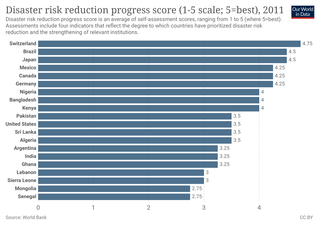
The World Food Programme (WFP) is an international organization within the United Nations that provides food assistance worldwide. It is the world's largest humanitarian organization and the leading provider of school meals. Founded in 1961, WFP is headquartered in Rome and has offices in 87 countries. In 2023 it supported over 152 million people, and it is present in more than 120 countries and territories.

The International Organization for Migration (IOM) is a United Nations related organization working in the field of migration. The organization implements operational assistance programmes for migrants, including internally displaced persons, refugees, and migrant workers.
The United Nations Development Programme (UNDP) is a United Nations agency tasked with helping countries eliminate poverty and achieve sustainable economic growth and human development. The UNDP emphasizes on developing local capacity towards long-term self-sufficiency and prosperity.
The World Conference on Disaster Risk Reduction is a series of United Nations conferences focusing on disaster and climate risk management in the context of sustainable development. The World Conference has been convened three times, with each edition to date having been hosted by Japan: in Yokohama in 1994, in Hyogo in 2005 and in Sendai in 2015. As requested by the UN General Assembly, the United Nations Office for Disaster Risk Reduction (UNDRR) served as the coordinating body for the Second and Third UN World Conference on Disaster Reduction in 2005 and 2015.
The United Nations Office for Project Services (UNOPS) is a United Nations agency dedicated to implementing humanitarian and development projects for the United Nations System, international financial institutions, governments and other partners around the world, with a focus on infrastructure, procurement and project management The organization's global headquarters is located at the UN City campus in Copenhagen, Denmark. UNOPS delivers around $3 billion worth of development projects for its partners every year. Its activities have ranged from managing the construction of schools in Afghanistan, to building shelters in Haiti, to procuring ambulances to support the Ebola response in Liberia.

Disaster risk reduction aims to make disasters less likely to happen. The approach, also called DRR or disaster risk management, also aims to make disasters less damaging when they do occur. DRR aims to make communities stronger and better prepared to handle disasters. In technical terms, it aims to make them more resilient or less vulnerable. When DRR is successful, it makes communities less the vulnerable because it mitigates the effects of disasters. This means DRR can make risky events fewer and less severe. Climate change can increase climate hazards. So development efforts often consider DRR and climate change adaptation together.

Lieutenant-General Nadeem Ahmad is a retired senior three-star ranking general officer who is famed and widely honored for planning and coordinating the relief and reconstruction non-combatant military operations after the devastating earthquake of October 2005. Securing the appointment as the director of Federal Relief Commission of Pakistan Army, his credentials secured him the directorship of the Earthquake Reconstruction and Rehabilitation Authority (ERRA). After serving in the military for nearly 40 years, he was duly appointed as the chairman of the National Disaster Management Authority (NDMA); his efforts included the successful disaster management and preparations to contain the nationwide 2010 floods and coordinate the rescue operations in the Hunza Valley, Attabad Lake, and the Airblue crash.

The floods in Pakistan began in late July 2010, resulting from heavy monsoon rains in the Khyber Pakhtunkhwa, Sindh, Punjab and, Balochistan regions of Pakistan, which affected the Indus River basin. Approximately one-fifth of Pakistan's total land area was affected by floods, with the Khyber Pakhtunkhwa province facing the brunt of the damage and casualties. Nationwide, there were 1,985 deaths. According to Pakistani government data, the floods directly affected about 20 million people, mostly by destruction of property, livelihood and infrastructure.
Local Adaptation Plans of Action (LAPAs) are community-driven plans that aim to help local governments and communities build resilience to the impacts of climate change. LAPAs are typically developed in regions or communities that are particularly vulnerable to the effects of climate change, such as areas prone to flooding, droughts, or extreme weather events.

Urban resilience has conventionally been defined as the "measurable ability of any urban system, with its inhabitants, to maintain continuity through all shocks and stresses, while positively adapting and transforming towards sustainability".

The United Nations Office for Disaster Risk Reduction (UNDRR) was created in December 1999 to ensure the implementation of the International Strategy for Disaster Reduction.

The 2030 Agenda for Sustainable Development, adopted by all United Nations (UN) members in 2015, created 17 world Sustainable Development Goals (SDGs). The aim of these global goals is "peace and prosperity for people and the planet" – while tackling climate change and working to preserve oceans and forests. The SDGs highlight the connections between the environmental, social and economic aspects of sustainable development. Sustainability is at the center of the SDGs, as the term sustainable development implies.
The Sendai Framework for Disaster Risk Reduction (2015–2030) is an international document that was adopted by the United Nations (UN) member states between 14 and 18 March 2015 at the World Conference on Disaster Risk Reduction held in Sendai, Japan, and endorsed by the UN General Assembly in June 2015. It is the successor agreement to the Hyogo Framework for Action (2005–2015), which had been the most encompassing international accord to date on disaster risk reduction.
The International Recovery Platform (IRP) is a joint initiative of United Nations agencies, international financial institutions, national and local governments, and non-governmental organizations engaged in disaster recovery. IRP was founded in 2005. It came after the Second World Conference on Disaster Reduction, to support implementation of the Hyogo Framework for Action (HFA). The group works to identify and address gaps in recovery knowledge, practice and constraints. In 2015, IRP aligned its work to support implementation of the newly adopted Sendai Framework for Disaster Risk Reduction. It concentrated on Priority Four – building back better in recovery, rehabilitation and reconstruction.
Building Back Better, or more frequently termed Build Back Better (BBB), is a strategy aimed at reducing the risk to the people of nations and communities in the wake of future disasters and shocks. It is a conceptual strategy that has continued to evolve since its origination in May 2005. However, what continues is the overall goal of enabling countries and communities to be stronger and more resilient following a disaster by reducing vulnerability to future disasters. Building resilience entails addressing physical, social, environmental, and economic vulnerabilities and shocks.

Sustainable Development Goal 11, titled "sustainable cities and communities", is one of 17 Sustainable Development Goals established by the United Nations General Assembly in 2015. The official mission of SDG 11 is to "Make cities inclusive, safe, resilient and sustainable". The 17 SDGs take into account that action in one area will affect outcomes in other areas as well, and that development must balance social, economic and environmental sustainability.

From 15 June to October 2022, floods in Pakistan killed 1,739 people, and caused ₨ 3.2 trillion of damage and ₨ 3.3 trillion of economic losses. The immediate causes of the floods were heavier than usual monsoon rains and melting glaciers that followed a severe heat wave, both of which are linked to climate change.
The events listed below are both anticipated and scheduled for the year 2023 in Pakistan.
The National Institute of Disaster Management, is a national think tank of the government of Pakistan responsible for capacity building, research, and policy development in the field of disaster management. Established with the objective of enhancing the country's resilience to natural and human-made disasters, NIDM functions under the umbrella of the National Disaster Management Authority (NDMA), which is the principal agency for coordinating disaster response and preparedness at the national level.











